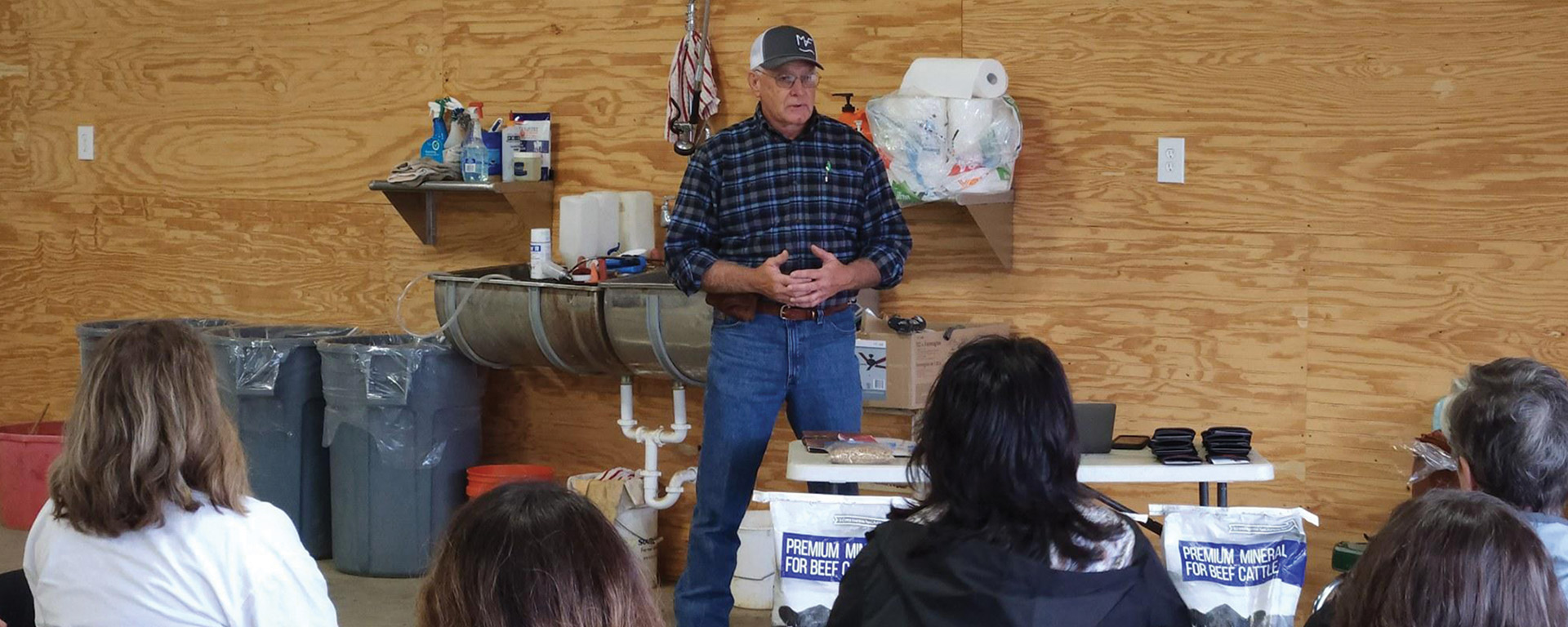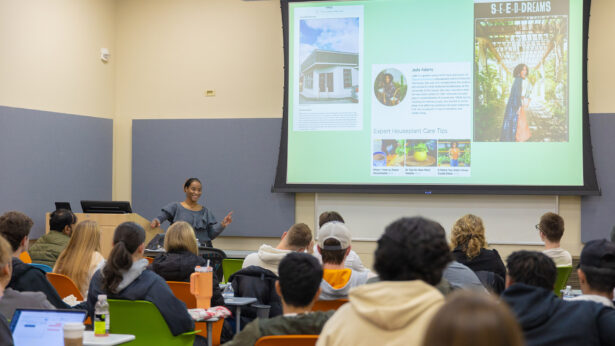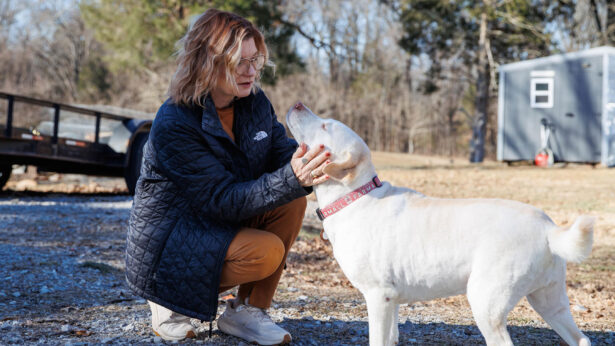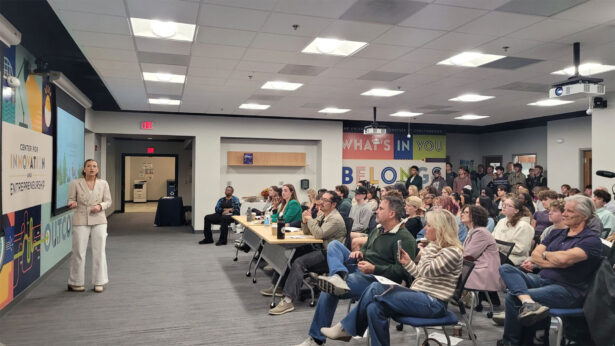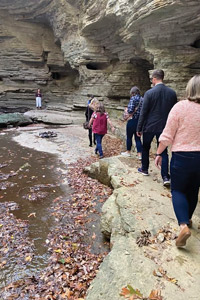
Anyone who listens to stories about rural Tennessee will hear a great deal about the challenges facing these communities, from the lack of broadband to quality health-care access. Addressing these challenges necessitates leadership that understands rural communities, the nuances of the issues and the potential solutions that already exist in many rural contexts.
At UT Southern, the Turner Center for Rural Vitality is building this leadership capacity in the region through its Regional Leadership cohort.
The cohort is designed to help leaders within the region better understand their communities, while thinking about both the communities’ opportunities and challenges. To do that, the Turner Center created a nine-month program that blends county visits with on-campus learning from leadership experts.
Launched in September, the cohort began with a day-long session on understanding the complex ways that leaders often talk about rural narratives.
“When people talk about rural places, we often default into either talking about them as these idyllic communities where everything is perfect or we talk about them as these places of imminent decline,” says Allen Stanton, Turner Center director. He says these narratives are repeated throughout history and reinforced in literature, political conversations and pop culture.
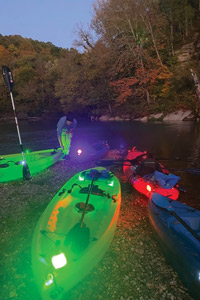
“Before we can really understand how to lead rural communities towards vitality, we have to figure out how to talk about them.”
The goal, says Stanton, is to have more nuance when looking at the challenges and opportunities in rural communities. As the cohort tours counties, its members will focus on particular themes, like tourism, business development and infrastructure. Stanton wants the participants to be able to notice what counties do well, their struggles and what might be lost or gained in a particular approach.
Participants focused first on Perry and Wayne counties. Members of the cohort stayed in the local Commodore Inn, learning from the owners about their motivations for starting the hotel and the challenges they’ve faced. The members also went hiking, night kayaking and visited local retailers. During their discussions, they discussed the different approaches a county might take towards building a tourist destination as well as what would be gained or lost.
Rebecka Cronin, Turner Center program officer, emphasized that tourism might look different in rural communities.
“There might not be a huge attraction like a theme park or a major shopping center. But people are still drawn to eco-tourism and enjoy the walkability of shopping in a small town,” she says. “We wanted to highlight these approaches to tourism because, while they might not be as flashy, they play a significant role in the local economy.”
Cronin said they will take the same approach in all of their county visits. In November, for instance, the group explored business development in Giles and Maury counties.
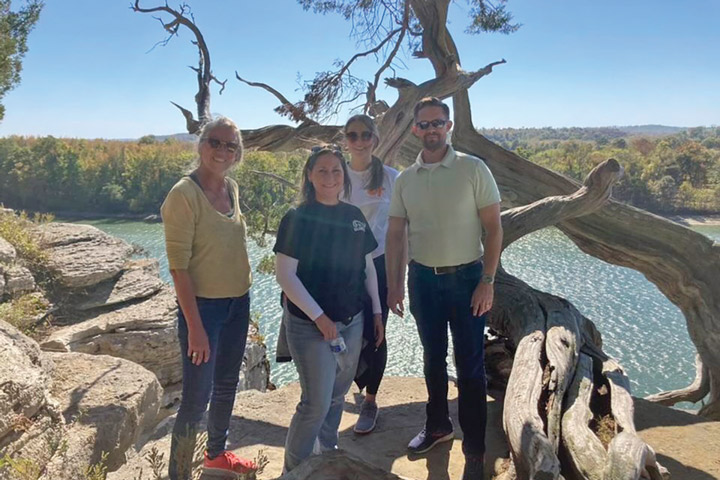
We want our rural leaders to see what the benefits and tradeoffs are in pushing for industry development or small-business development,” Cronin says. How do they impact the broader economy? How do those decisions shape the livability and culture of the community?”
Participants will visit all 13 counties in Southern Middle Tennessee. Each visit will examine a particular aspect of rural economic development, including industry, workforce development, social entrepreneurship and cultural assets.
Stanton and Cronin emphasized that rural communities have a lot of existing assets that might be overlooked. Participants will build community-focused asset maps, which can be used to help identify and build strategies to confront challenges in their local communities.
“A consistent thing we heard was that we needed to emphasize the distinctive rural flavor of each community,” Stanton says.
Participants also will gather for intentional leadership-development opportunities, using resources from throughout the UT System, including the Naifeh Center for Effective Leadership.
“Because we’re the newest campus in the UT System and because we’re the only public university in the region, we wanted to be sure that we were intentional about showcasing the resources that people in our region can access,” Stanton says. “Part of the gift of being affiliated with the University of Tennessee is that we can connect leaders to really great resources.”
To learn more about UT Southern’s Turner Center for Rural Vitality or to apply for the next UT Southern Regional Leadership cohort, visit utsouthern.edu/4424-2/.
